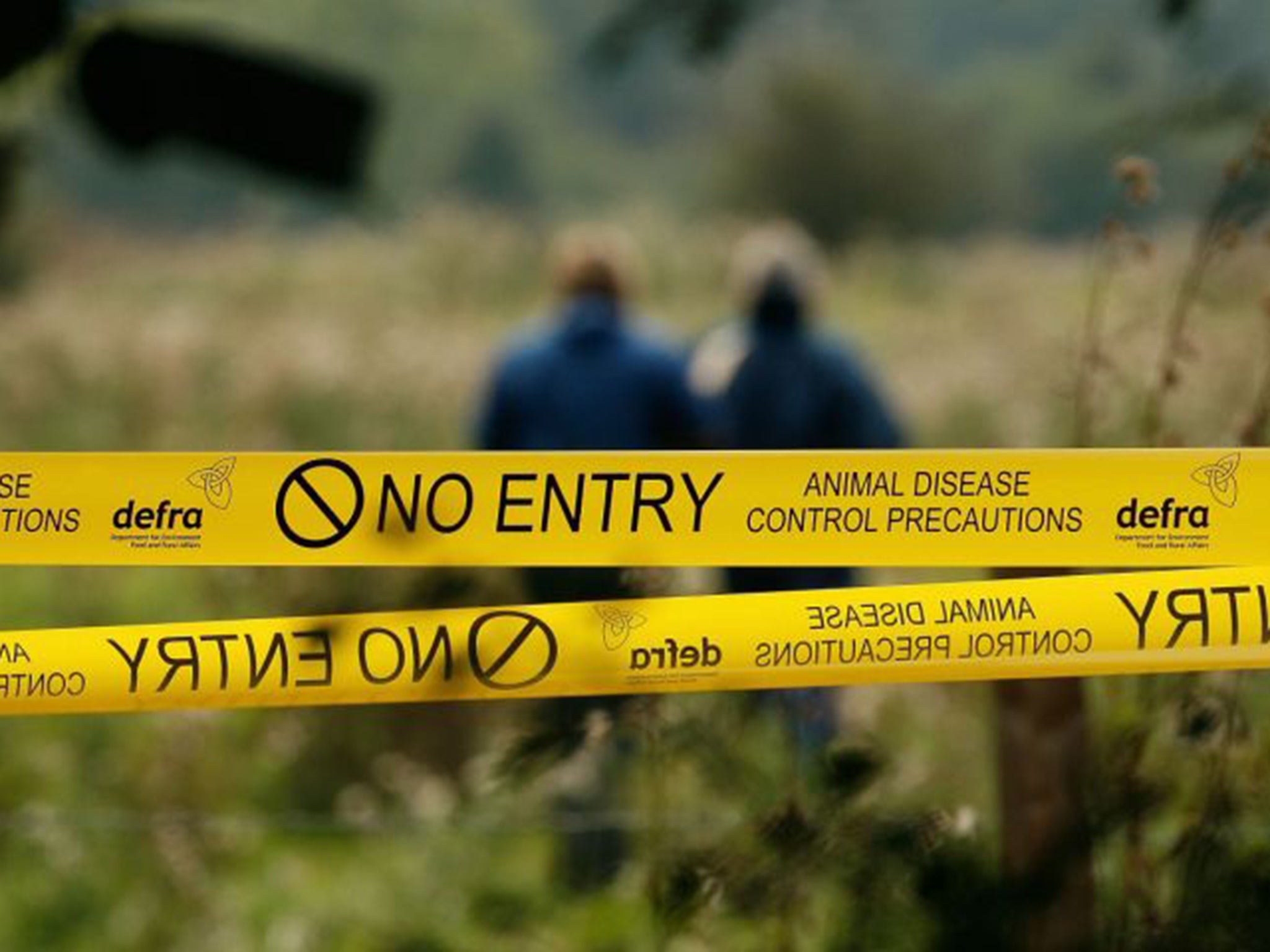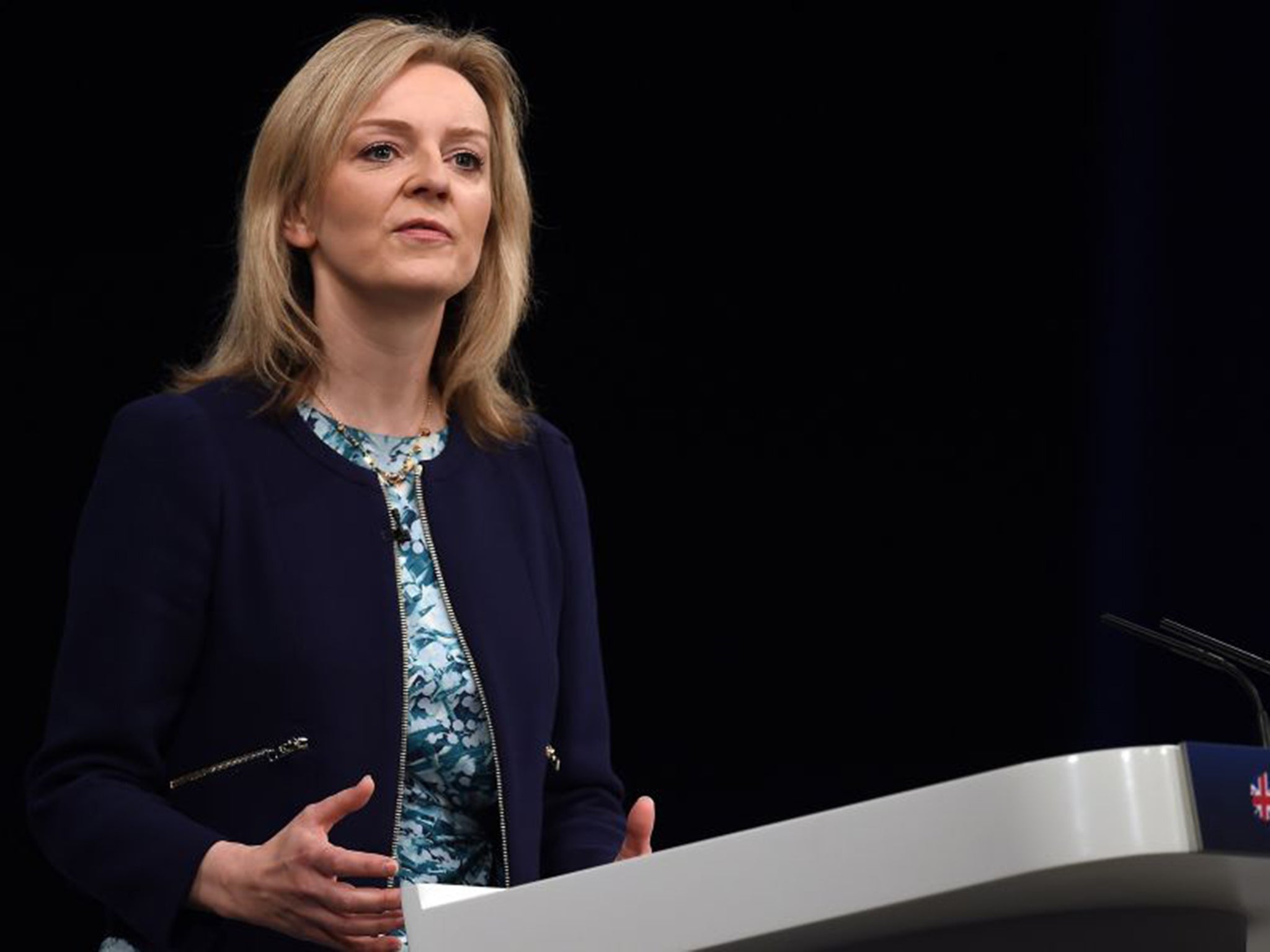George Osborne's cuts 'threaten UK's ability to detect animal diseases'
President of British Veterinary Association warns swingeing cuts could result in outbreak similar to foot and mouth

Your support helps us to tell the story
From reproductive rights to climate change to Big Tech, The Independent is on the ground when the story is developing. Whether it's investigating the financials of Elon Musk's pro-Trump PAC or producing our latest documentary, 'The A Word', which shines a light on the American women fighting for reproductive rights, we know how important it is to parse out the facts from the messaging.
At such a critical moment in US history, we need reporters on the ground. Your donation allows us to keep sending journalists to speak to both sides of the story.
The Independent is trusted by Americans across the entire political spectrum. And unlike many other quality news outlets, we choose not to lock Americans out of our reporting and analysis with paywalls. We believe quality journalism should be available to everyone, paid for by those who can afford it.
Your support makes all the difference.The UK’s ability to detect diseases among farm animals will be damaged by the swingeing cuts due to be unveiled by the Chancellor, George Osborne, this week and could result in a disastrous outbreak similar to foot and mouth, one of the country’s most senior vets has warned.
The president of the British Veterinary Association (BVA) said that the anticipated deep cuts to the budget of the Department for Environment, Food and Rural Affairs (Defra) could result in warning signs being missed, allowing infectious diseases to spread unchecked.
Sean Wensley, head of the national vets organisation, added that previous budget tightening had resulted in the closure of government-funded disease surveillance centres. Although the private sector had stepped in to plug the gaps and private vets were doing more surveillance work, he said that BVA research showed that many did not submit data from post-mortems and blood testing to the national network, making effective monitoring more difficult.
“The BVA, on behalf of the veterinary profession, is keen to emphasise the importance of an adequate budget for Defra – not least in maintaining our ability to detect potential disease incursion. There needs to be a robust surveillance network that allows us to detect new diseases as and when they emerge,” he said.

“We wouldn’t want to scaremonger, but we know of examples of those types of diseases, such as avian flu or foot and mouth. It is having a veterinary presence on farms and throughout the food supply chain that allows us to detect those diseases swiftly.”
Mr Wensley added that the ability of vets to contain diseases would also be hampered if they are left without adequate resources.
“It’s one thing detecting disease incursions, but it’s as important, if not more so, to be able to act on it. The less budget that is allocated to resource response in an emergency, the more likely it is that one of those diseases goes undetected and spreads,” he said.
He pointed out that the UK’s ability to detect potential disease outbreaks and respond “quickly and effectively” was not just vital for animal welfare but also for the economy, as British farmers relied on the disease-free status of their produce for trade purposes.
Any cracks in the system would damage “the proud reputation of British agriculture”.
Earlier this month, Mr Osborne announced that Defra and three other government departments – the Treasury, the Department for Transport and the Department for Communities and Local Government – had each agreed to budget cuts of 30 per cent over four years. The exact details will be unveiled on Wednesday in the Spending Review.
The Environment Secretary, Liz Truss, said that the savings required from the Department for Environment, Food and Rural Affairs could be made by closer working between its various agencies and the merging of “back office” functions.
But the president of the National Farmers Union and other central figures in the sector have warned that frontline services are likely to be threatened.
Farming minister George Eustice insists that the Government’s priority is combating outbreaks. “The number-one priority for Defra on the farming front is protecting ourselves against disease and being ready to deal with serious outbreaks when they happen.
“We’ll be making absolutely sure that we do not compromise our resilience and our ability to tackle diseases of that sort.”
Join our commenting forum
Join thought-provoking conversations, follow other Independent readers and see their replies
Comments